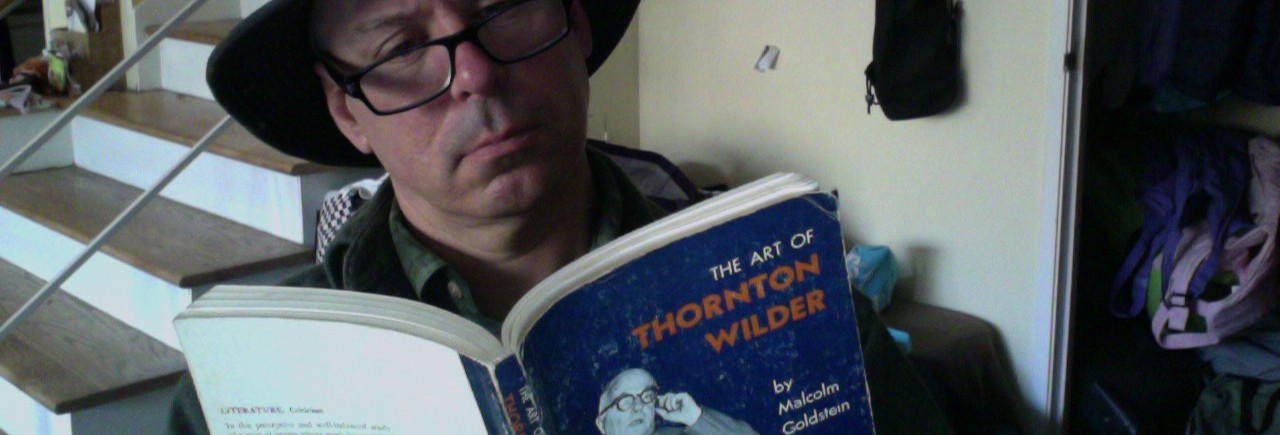There’s a lot of sex talk in the Humana plays this year. I liked it best in Erin Courtney’s I Will Be Gone, where the banter and come-ons and physical carryings-on have a serious point to make about how human beings connect and relate and release. There’s a heightened sense to the sexuality here that matches the play’s supernatural and spiritual overtones. I Will Be Gone is a small town drama that, for a change, is not about isolation and despair. It’s about community and despair.
Another Humana constant this year, besides saucy talk, is plays that contrast city living with country living (Roommates, That High Lonesome Sound ), or city living with smaller-city living (Dot) or Earth living with some imaginative intergalactic homophobic consciousness (I Promised Myself to Live Faster). I Will Be Gone doesn’t argue for a certain way of life. It uses its smalltown setting not as a platform to launch one-liners at those darn persnickety city folks, but to keep its characters close at hand and in others’ faces. The haunted mining town of Bodie, we are told, is “in a state of arrested decay.” So are those who’ve grown up around it,
Courtney writes meaningful dialogue that registers clearly as being greater than the sum of the personal issues of quirky characterGone. I Will Be Gone is, among other things, a play about generational conflict, cultural heritage and the trappings of history.
Courtney gets the voices right: her teen characters act awkwardly and self-consciously whether they are chatting about the weather or masturbating alongside each other. Her middle-aged characters are believably secure in some aspects of their lives and believably insecure in others. They also dance around chanting Beastie Boys lyrics–an admirable choice that is so much more theatrically useful than the usual generic heavy metal headbanging.
There are ghosts in I Will Be Gone, ghosts that make sense being there, like the ghosts in The Piano Lesson or Blithe Spirit or Hamlet. There is childlike wonder and adult horror. There are scary transitions–to adulthood, to adultery, to mental decline and death.
Courtney, like so many contemporary playwrights, has trouble wrapping up her play neatly and strongly. The final scenes seem too pristine, too intimate, too much about specific characters for such an expansive play with such large social themes. But so much of the script has already found itself that the ending will too, I expect. Especially if subsequent productions have a set as magnificent and practical as Andrew Boyce’s multi-dimensional maze of doors, windows and spooky projections, or actors on the level of Rachel Leslie (who beautifully transnits vulnerability through a tough exterior), Amy Berryman (wondrously withdrawn and waifish) and Alexander Moggridge (whom I’ve seen in half a dozen things now at Long Wharf, Yale Rep and Humana; it is nice to see him break out of the meek everyman/nice-guy mold he’s usually smoothed into and instead play a reckless boyish grownup). It’s a strong cast all around, who get that there’s an aura of mystery, sex, sexual mystery and mysterious sexuality permeating I Will Be Done like a cloud of coal dust.
